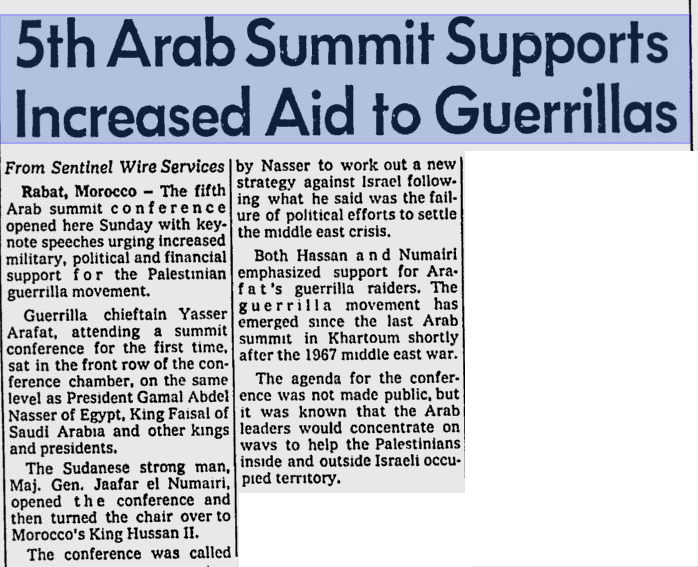Caroline Glick: The diplomatic track to war
Everyone recognizes that the situation is only going to get worse. With each passing week, Iran’s power and brazenness will only increase.Melanie Phillips: Slippery face-saver, but Iran wins
Everyone understands this. And this week they learned that with Washington heading the committee welcoming Iran’s regional hegemony and nuclear capabilities, no outside power will stand up to Iran’s rise. The future of every state in the region hangs in the balance. And so, it can be expected that everyone is now working out a means to preempt and prevent a greater disaster.
These preemptive actions will no doubt include three categories of operations: striking Hezbollah’s missile arsenal; striking the Iranian Navy to limit its ability to project its force in the Bab al-Mandab; and conducting limited military operations to destroy a significant portion of Iran’s nuclear installations.
Friday is the eve of Passover. Thirteen years ago, Palestinian terrorists brought home the message of the Exodus when they blew up the Seder at Netanya’s Park Hotel, killing 30, wounding 140, and forcing Israel into war. The message of the Passover Haggada is that there are no shortcuts to freedom. To gain and keep it, you have to be willing to fight for it.
That war was caused by Israel’s embrace of the notion that you can bring peace through concessions that empower an enemy sworn to your destruction. The price of that delusion was thousands of lives lost and families destroyed.
Iran is far more powerful than the PLO. But the Americans apparently believe they are immune from the consequences of their leaders’ policies. This is not the case for Israel or for our neighbors. We lack the luxury of ignoring the fact that Obama’s disastrous diplomacy has brought war upon us. Deal or no deal, we are again about to be forced to pay a price to maintain our freedom.
In 2003, similar hopes of a “Grand Bargain” with Iran which would disarm Hezbollah likewise turned to ashes. The west made two bad mistakes which it is still making today.David Horovitz: Defeatist Obama’s deal with the devil
First, it pinned its hopes on Iran’s reformist-seeming presidents – but the only person who matters is the implacable Supreme Leader, Ayatollah Khamenei.
Second, it failed to grasp the central role of deception in Iranian diplomacy through the Islamic principle of taqiyya, or mandated lying in the defense of Islam. Any agreement with Iran over its nuclear program is therefore worth nothing at all.
The west thinks that it can swallow Iran.
In fact – with Obama’s free pass empowering it to extend its influence over Iraq, Lebanon, Syria, Gaza and Yemen – Iran is instead swallowing the West.
Of course, it may already be too late to stop the Iranian bomb. Credible reports suggest Iran has outsourced its development to Syria and North Korea. But then, the deal being negotiated was never about stopping Iran getting the bomb. It was all about stopping America and Israel from stopping Iran from getting the bomb.
Obama and Iran have now got more breathing space to achieve precisely that.
Extolling the virtues of his deal with Iran on Thursday, President Barack Obama made a false and extremely nasty assertion: “It’s no secret,” he claimed, incorrectly, “that the Israeli prime minister and I don’t agree about whether the United States should move forward with a peaceful resolution to the Iranian issue.”
It is indeed no secret that Obama and Netanyahu don’t agree on how to thwart Iran’s nuclear weapons ambitions. It is emphatically not the case, however, that Israel’s prime minister opposes “a peaceful resolution to the Iranian issue.” It is emphatically not the case, despite Obama’s insinuation, that Israel’s leader regards military intervention as the only means to thwart Iran.
Netanyahu has not been saying no to diplomacy. His endlessly stated contention is not that war is the only alternative to the deal so delightedly hailed by Obama as “the most effective way to ensure Iran doesn’t get a nuclear weapon.” Rather, in Netanyahu’s insistent opinion, what is needed is simply a different, far more potent deal.
As Netanyahu made plain in anguished, infuriated tones on Wednesday, in the final hours before the Lausanne agreement was struck, what was required was not no deal at all, but rather “a better deal,” one “which would significantly roll back Iran’s nuclear infrastructure” and “link the eventual lifting of the restrictions on Iran’s nuclear program to a change in Iran’s behavior.” A deal to ensure that Iran “stop its aggression in the region, stop its terrorism throughout the world, and stop its threats to annihilate Israel.” That, said Netanyahu, is “the deal that the world powers must insist upon.”



















































